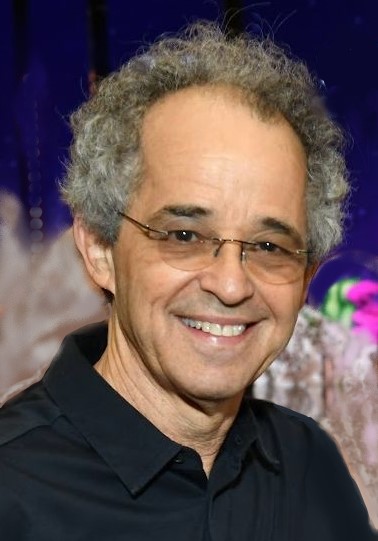Leo Corry on:
[Wikipedia]
[Google]
[Amazon]
 Leo Corry (ליאו קורי, born 1956 in Santiago de Chile) is an Israeli historian of mathematics.
Leo Corry (ליאו קורי, born 1956 in Santiago de Chile) is an Israeli historian of mathematics.
2nd edition 2003
ref> * * ''David Hilbert and the Axiomatization of Physics'' (1898–1918): From ''Grundlagen der Geometrie'' to ''Grundlagen der Physik''. Dordrecht: Kluwer, 2004. (also in ''Archimedes. New Studies in the History and Philosophy of Science and Technology''
* * * *
New York: Oxford University Press, 2015
Leo Corry homepageHistory of General Relativity Theory
{{DEFAULTSORT:Corry, Leo 1956 births Living people People from Santiago Tel Aviv University alumni Massachusetts Institute of Technology faculty Academic staff of Tel Aviv University Israeli mathematicians Israeli historians Historians of science Historians of mathematics Venezuelan Jews Venezuelan emigrants to Israel Spanish–Hebrew translators
 Leo Corry (ליאו קורי, born 1956 in Santiago de Chile) is an Israeli historian of mathematics.
Leo Corry (ליאו קורי, born 1956 in Santiago de Chile) is an Israeli historian of mathematics.
Biography
Corry migrated with his Jewish family to Venezuela when he was two years old. He attended primary and secondary school at Colegio Moral y Luces ofCaracas
Caracas (, ), officially Santiago de León de Caracas, abbreviated as CCS, is the capital and largest city of Venezuela, and the center of the Metropolitan Region of Caracas (or Greater Caracas). Caracas is located along the Guaire River in the ...
and then at the Universidad Simón Bolívar studied mathematics with licentiate's degree in 1977. He attended graduate school at the University of Tel Aviv
Tel Aviv University (TAU) ( he, אוּנִיבֶרְסִיטַת תֵּל אָבִיב, ''Universitat Tel Aviv'') is a public research university in Tel Aviv, Israel. With over 30,000 students, it is the largest university in the country. Locate ...
. There he received in 1983 his master's degree in mathematics with master's thesis ''Splitting data in cohomology classes'', supervised by Shmuel Rosset, and in 1990 his Ph.D. in the history of science with Ph.D. thesis ''The origins of category theory as a mathematical discipline'', supervised by Sabetai Unguru and Shmuel Rosset. At the University of Tel Aviv, Corry became in 1985 an instructor, in 1996 a lecturer, in 2004 an associate professor and from 2007 a full professor in the Cohn Institute for the History of Science. He was the Director of the Cohn Institute from 2003 to 2009, Director of the Yavetz School of HIsotircal Studies from 2013 to 2015, and Dean of HUmanities at TAU between 2015 and 2020. In the academic year 1994–1995, he was fellow at the Dibner Institute for the History of Science and Technology at MIT, for the academic year 1995–1996 at the Max Planck Institute for the History of Science in Berlin and in 2006 at the Wissenschaftskolleg zu Berlin
The Institute for Advanced Study in Berlin (german: Wissenschaftskolleg zu Berlin) is an interdisciplinary institute founded in 1981 in Grunewald, Berlin, Germany, dedicated to research projects in the natural and social sciences. It is modeled ...
.
Corry has done research on the development of modern algebra and number theory (including computational number theory
In mathematics and computer science, computational number theory, also known as algorithmic number theory, is the study of
computational methods for investigating and solving problems in number theory and arithmetic geometry, including algorithms ...
done by Harry Vandiver, D. H. Lehmer
Derrick Henry "Dick" Lehmer (February 23, 1905 – May 22, 1991), almost always cited as D.H. Lehmer, was an American mathematician significant to the development of computational number theory. Lehmer refined Édouard Lucas' work in the 1930s and ...
, and Emma Lehmer
Emma Markovna Lehmer ('' née'' Trotskaia) (November 6, 1906 – May 7, 2007) was a mathematician known for her work on reciprocity laws in algebraic number theory. She preferred to deal with complex number fields and integers, rather than ...
) and the philosophy of mathematics (including the Bourbaki School). His research has also dealt with Albert Einstein, Hermann Minkowski
Hermann Minkowski (; ; 22 June 1864 – 12 January 1909) was a German mathematician and professor at Königsberg, Zürich and Göttingen. He created and developed the geometry of numbers and used geometrical methods to solve problems in number t ...
, David Hilbert
David Hilbert (; ; 23 January 1862 – 14 February 1943) was a German mathematician, one of the most influential mathematicians of the 19th and early 20th centuries. Hilbert discovered and developed a broad range of fundamental ideas in many a ...
and his school, the history of Latin American science, and Jorge Luis Borges. With John Stachel
John Stachel (; born 29 March 1928) is an American physicist and philosopher of science.
Biography
Stachel earned his PhD at Stevens Institute of Technology in Physics about a topic in General relativity in 1958. After holding different teaching p ...
and Jürgen Renn, Corry discovered new documents concerning the priority dispute between Hilbert and Einstein, and these new documents support Einstein against Hilbert.
In 2006, Corry was an invited speaker at the ICM in Madrid with a talk ''On the origin of Hilbert's sixth problem: physics and the empiricist approach to axiomatization''.
From 1999 to 2009 and from 2011 to 2013, he was editor of '' Science in Context''.
Selected publications
* ''Modern algebra and the rise of mathematical structures''. Birkhäuser, Science Networks, vol. 17, 19962nd edition 2003
ref> * * ''David Hilbert and the Axiomatization of Physics'' (1898–1918): From ''Grundlagen der Geometrie'' to ''Grundlagen der Physik''. Dordrecht: Kluwer, 2004. (also in ''Archimedes. New Studies in the History and Philosophy of Science and Technology''
* * * *
New York: Oxford University Press, 2015
References
External links
Leo Corry homepage
{{DEFAULTSORT:Corry, Leo 1956 births Living people People from Santiago Tel Aviv University alumni Massachusetts Institute of Technology faculty Academic staff of Tel Aviv University Israeli mathematicians Israeli historians Historians of science Historians of mathematics Venezuelan Jews Venezuelan emigrants to Israel Spanish–Hebrew translators